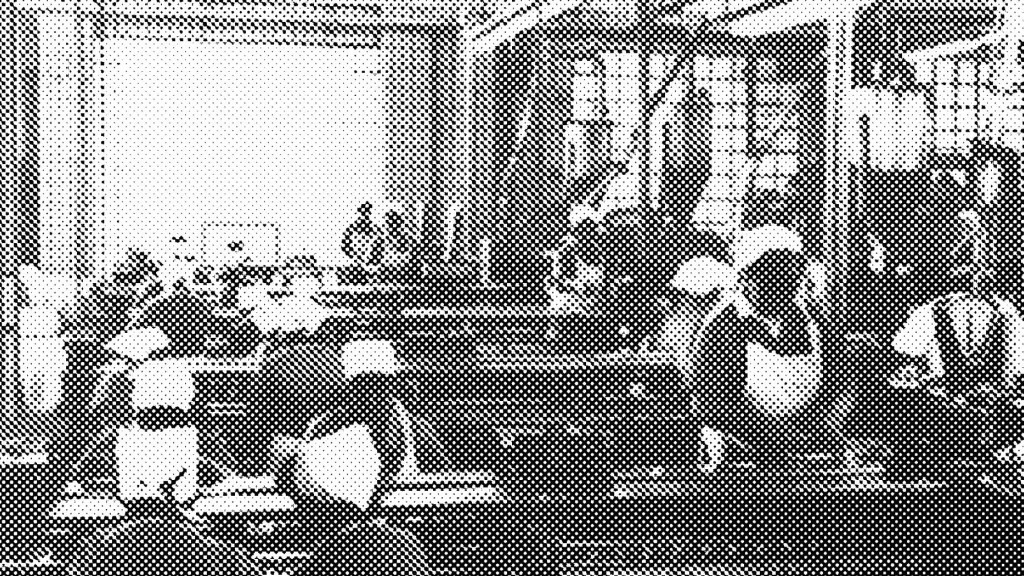- Program
- /
- Film Series
- /
- City, Country, Stranger
- /
- EKMEK PARASI – MONEY FOR DAILY BREAD
EKMEK PARASI – MONEY FOR DAILY BREAD
Followed by a talk with Gisela Tuchtenhagen
The vegetables come from the garden behind the house, the fish from the tin and the money for the daily bread comes from the factory. The women came here for this money. Women from Turkey, women from the North German Mecklenburg – together, they are working on the assembly line of the Hawesta fish factory in Lübeck. Their hands coloured brown and persistently smelling from the fish, their arms and backs aching. If this work was conducted by men, it would have been automated already but women’s labor is cheap and the women don’t complain, despite all problems. They have learned to work. The work is their pride.
"Serap Berrakkarasu has managed to build a bond of trust, because she approaches women with feeling and great interest - and because she speaks their language. Ekmek Parası - Money for the Bread is a film in German and Turkish. From this, too, it derives its charm and its authenticity. Typical women's work has always been communicative. It is the merit of Serap Berakkarasu and Gisela Tuchtenhagen to have been part of this communication and to have preserved it in their directness and spontaneity for the film. In the end, the women filmmakers say goodbye to the women in the fish factory like colleagues: have a nice weekend!" (Linde Fröhlich)
Gisela Tuchtenhagen was born in 1943 in Koszalin (Poland). She is the fifth child of a family that fled to Schleswig-Holstein in 1944. At the age of 15, Tuchtenhagen moved to Paris and lived there until 1963. After an apprenticeship as a photographer she studied at DFFB in Berlin and worked as a camerawoman and film editor.
